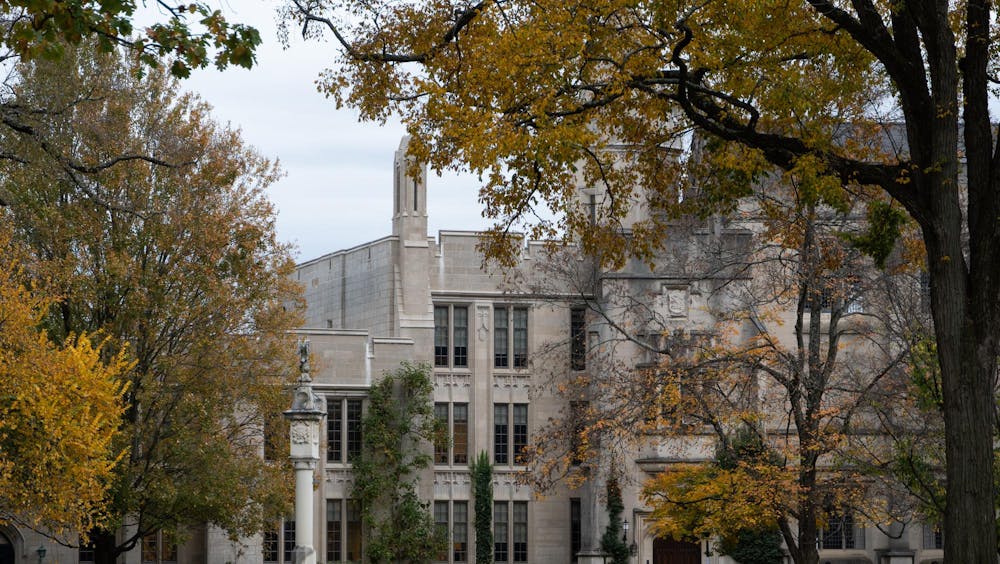Angela Creager, professor in the History of Science and chair of the Department of History, and Ryo Morimoto, assistant professor of Anthropology, have received grants from the National Endowment for the Humanities (NEH) to support their respective projects in the humanities, according to a University announcement.
Their projects are among 260 humanities projects “undertaken by scholars, higher education institutions and organizations of every size” to be awarded NEH grants this year. According to the NEH press release announcing the recipients, the goal of the endowment is to “help preserve and expand access to community histories, strengthen the ability of small museums and archives to serve the public, and provide resources and educational opportunities for students to engage with history, literature, languages, and cultures.”
The grants come at a time when humanities programs at colleges and universities across the country are facing budget cuts, elimination, and political attacks, leading to a national debate over the future of the humanities. The recipients noted that they hope the research done with the help of the grants will encourage continued education in the humanities.
“There are a lot of universities that participate in activities to try to promote the value of the humanities … [The NEH] is an incredibly important source of research,” Creager said. “My method is deeply historical…it’s really important for historians to be able to cover all aspects of society.”
Creager received a $60,000 grant for researching and writing the book, “Environment, Mutation, Cancer: A History of the Ames Test.” Morimoto received a $60,000 grant for researching and writing his second book, “Disasters, Crises and Robot Development in Japan and the U.S.”
Creager has been a member of the Princeton faculty since 1994. Her academic work focuses on the history of science, specifically “in how the work of biologists contribute to new understandings of health and disease.”
“Environment, Mutation, Cancer: A History of the Ames Test” will look at the connections between the Ames Test and the cultural, political, and legal history of cancer in the United States. The Ames Test exposes a bacterial strand to a potentially dangerous material to assess if that material will lead to mutations in the bacteria.
Craeger shared with The Daily Princetonian that she initially became interested in “thinking [about] and analyzing how [the Ames Test] may have informed environmental regulation because it was developed in the early 1970s,” when landmark legislation such as the Clean Water Act shed light on how new testing could inform regulators about substances that could be unsafe.

Creager has followed the Ames Test for the past 10 to 15 years. Her book will span the mid-19th century to the 1980s and ’90s and includes a long analysis of “how ideas about the genetic origins of cancer, the mutational origins of cancer shifted in this time period.”
Morimoto joined the Princeton faculty in 2018. He studies anthropology with a focus on nuclear history, culture and memory.
His project, “Disasters, Crises and Robot Development in Japan and the U.S.,” studies U.S.-Japanese collaboration in the development of robots, focusing on their use in areas including disaster recovery, care for the elderly, and nuclear reactor maintenance.
In an interview with the ‘Prince,’ Morimoto said that he first became interested in this topic after serving as a translator for the International Documentary film project about coastal Fukushima, which was affected by a nuclear disaster in 2011. Morimoto emphasized his desire to “more accurately represent” the local communities there and how they have been impacted by nuclear disaster.

Morimoto’s book will follow the development of “disaster robots” tasked with decommissioning damaged nuclear reactors and how this investment in robots may provide benefits for other areas of Japanese society, like caring for the elderly.
The Institute for Advanced Study, located in the town of Princeton, was also awarded a grant, receiving $75,000 for their project titled: “Developing OCR for Squeezes: Unlocking the Text of Greek Inscriptions Using the Krateros Database.”
The NEH has come under political fire in recent years, with right-wing politicians proposing elimination of the fund. Bipartisan congressional support for the program has blocked such efforts thus far, with the Fiscal Year 2024 Budget providing $211 million for the NEH.
“Because democracy demands wisdom” the NEH website reads, “NEH serves and strengthens our republic by promoting excellence in the humanities and conveying the lessons of history to all Americans.”
Morimoto similarly added, “I want to show that the humanities are inevitably connected to science and technologies. Many technologies that people make have eventually been integrated into society, which then bring out all sorts of questions and issues that humanities and social scientists can address.”
Bridget O’Neill is a head News editor for the ‘Prince.’
Yan Zhen Zhu is a News contributor for the ‘Prince.’
Please send corrections to corrections[at]dailyprincetonian.com.








